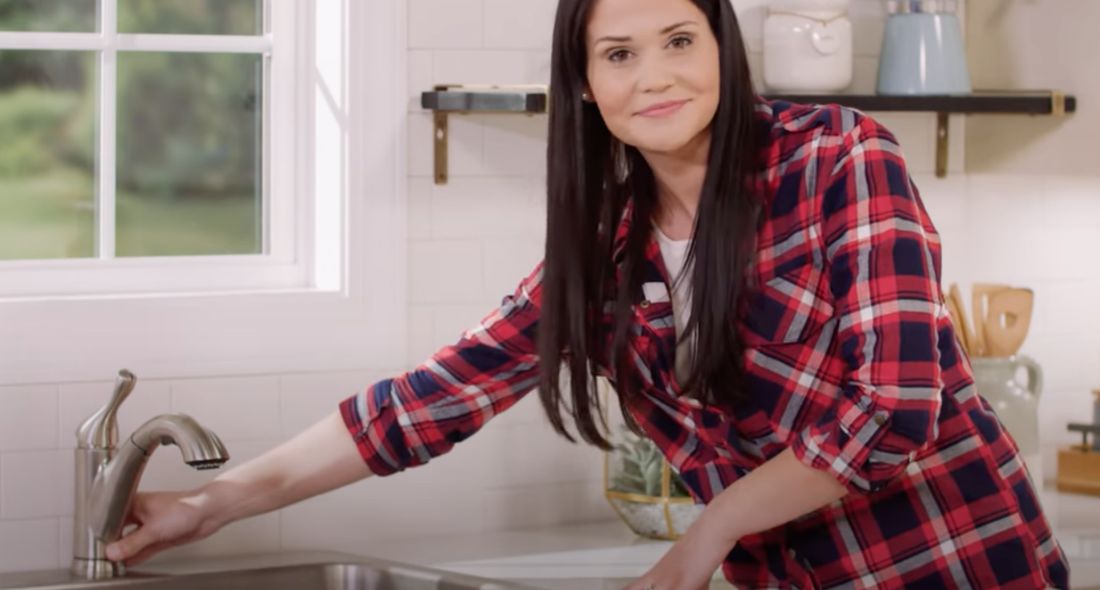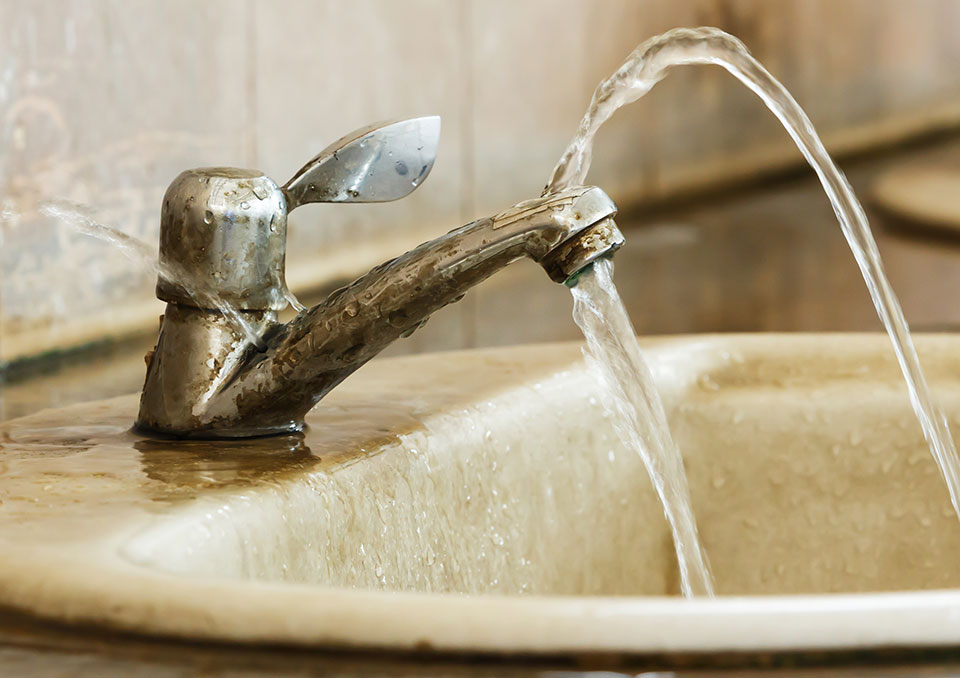Understanding the Significance of Correcting a Malfunctioning Faucet
Understanding the Significance of Correcting a Malfunctioning Faucet
Blog Article
Everyone has their own opinions on the subject of Water Dripping from Faucet: Why and How to Fix.

Trickling taps could seem like a minor hassle, however their effect exceeds simply the nuisance of the audio. From drainage to sustaining unneeded monetary expenses and wellness threats, overlooking a trickling tap can cause different repercussions. In this short article, we'll delve into why it's crucial to resolve this typical home issue promptly and properly.
Wastefulness of Water
Ecological Impact
Trickling taps contribute dramatically to water waste. According to the Environmental Protection Agency (EPA), a solitary faucet trickling at one drip per second can throw away greater than 3,000 gallons of water per year. This not just strains water sources but additionally affects ecological communities and wildlife depending on them.
Step-by-Step Guide to Taking Care Of a Dripping Tap
Tools Needed
Prior to attempting to take care of a dripping faucet, collect the necessary tools, consisting of a flexible wrench, screwdrivers, substitute parts (such as washers or cartridges), and plumber's tape.
Typical Tap Issues and Their Solutions
Recognize the sort of faucet and the particular problem creating the drip. Usual troubles include worn-out washers, corroded valve seats, or faulty O-rings. Refer to producer instructions or on the internet tutorials for step-by-step guidance on fixings.
Financial Expenses
Enhanced Water Bills
Past the environmental influence, trickling faucets can blow up water costs significantly. The gathered waste gradually translates into greater energy costs, which could have been stayed clear of with prompt repair work.
Potential Residential Or Commercial Property Damages
Additionally, prolonged trickling can result in harm to components and surfaces bordering the faucet. Water buildup can trigger discoloration, corrosion, and also structural problems if left neglected, leading to added repair work expenses.
Wellness Issues
Mold And Mildew and Mold Development
The consistent presence of dampness from a leaking tap creates an optimal setting for mold and mildew and mildew growth. These fungi not only jeopardize interior air top quality yet also pose wellness threats, particularly for individuals with respiratory conditions or allergies.
Waterborne Diseases
Stagnant water in dripping faucets can come to be a breeding place for microorganisms and various other virus, boosting the danger of waterborne illness. Contaminants such as Legionella germs flourish in stagnant water, possibly causing major diseases when consumed or breathed in.
DIY vs. Specialist Repair service
Benefits and drawbacks of DIY Fixing
While some might attempt to deal with a dripping tap themselves, DIY repair work feature their own collection of challenges. Without correct knowledge and devices, DIY attempts can aggravate the issue or cause incomplete repair services, lengthening the problem.
Benefits of Working With a Professional Plumber
Working with a professional plumber guarantees that the underlying root cause of the trickling faucet is dealt with successfully. Plumbing professionals have the knowledge and devices to identify and fix tap concerns successfully, conserving time and decreasing the threat of more damages.
Ecological Obligation
Individual Contribution to Preservation
Taking duty for taking care of dripping taps straightens with broader initiatives toward water preservation and ecological sustainability. Every individual's actions jointly make a substantial impact on maintaining valuable resources.
Lasting Living Practices
By focusing on prompt fixings and embracing water-saving habits, people contribute to lasting living methods that profit both present and future generations.
Preventive Measures
Regular Maintenance Tips
To stop leaking taps, carry out regular maintenance such as cleaning up aerators, inspecting for leaks, and changing worn-out parts without delay. Additionally, think about installing water-saving devices or updating to more effective components.
Relevance of Prompt Repair Works
Attending to trickling taps as quickly as they're noticed avoids additional water waste and possible damages, inevitably conserving both water and cash in the future.
Influence On Residential Or Commercial Property Value
Perception of Well-Maintained Home
Preserving a building in good condition, consisting of attending to maintenance issues like dripping taps, improves its viewed value and worth amongst potential buyers or lessees.
Influence on Resale Value
Properties with well-maintained plumbing components, including taps, command higher resale worths in the realty market. Addressing trickling faucets can add to a positive impact during building evaluations and arrangements.
Conclusion
Resolving a dripping faucet surpasses simple ease; it's a vital action towards conserving water, decreasing economic prices, and protecting health and wellness and building. Whether through DIY repair work or expert help, doing something about it to deal with trickling faucets is a small yet impactful way to promote responsible stewardship of resources and contribute to a healthier, more sustainable future.
How to Fix a Leaky Faucet: Step-by-Step Repair Guide
A leaky faucet may seem like a simple annoyance, but if it's not fixed promptly, that leak could cost hundreds to potentially thousands. From water damage to mold, mildew, and high water bills, even a tiny leak can be catastrophic if left unattended. Damage like this can even affect the overall value of your home, so it's important to take the right approach for leaky faucet repair. You may need the help of a plumber in some cases, but we've got a few tips you can try on how to fix a leaky faucet before calling the pros.
Four Faucet Types
When you're learning how to fix a leaky faucet, the first step is knowing what kind of faucet you're working with! There are four common types.
Cartridge Faucets
Cartridge faucets come in one- or two-handled varieties. In one-handled cartridge faucets, hot and cold water combines in a single cartridge. In the two-handled versions, hot and cold water are controlled separately and mixed in the faucet.
Ball Faucets
Ball faucets have a single lever you push up and down to adjust the pressure and rotate to change the temperature. A slotted metal ball controls the amount of water allowed into the spout.
Compression Washer Faucets
They're the oldest type of faucet, but they're still used in many homes — especially older ones. Compression faucets have two separate handles that, when turned, raise or lower the washer that seals a water valve. This valve stops water from flowing through the faucet when it is turned off.
Disc Faucets
Disc faucets rarely need to be repaired due to their maintenance-free design. The water flow is controlled by two discs — the upper one raises and lowers against a fixed lower disc, creating a watertight seal. If your disc faucet starts leaking, you may need to replace the seals or clean residue buildup from the inlets.
Fixing a Leaky Faucet
Step 1: Turn Off the Water
Whether you're learning how to fix a leaky bathtub faucet or how to fix a leaky kitchen faucet, always turn off the water supply to your working area when you're fixing a leak. The last thing you want is a flood added to your list of things to fix.
Look for the shutoff valves below your sink or around the tub and turn them clockwise to stop the water flow. If your faucet doesn't have shutoff valves, you may need to turn off the water for the whole house. Check to make sure it's off by turning the faucet on. If nothing comes out, you're ready to start the repair.
Step 2: Take Apart the Faucet
How you disassemble your faucet depends on the type of fixture you have. You can use a flathead screwdriver to remove the caps on top of the handle or handles for cartridge and compression faucets. Inside, you should see handle screws. Unscrew these with a screwdriver to remove the handle.
Disc- and ball-style faucets will typically have an inlet screw near the handle, and removing that will reveal the interior of the faucet.
Detach the Valve Stem
For cartridge- and compression-style faucets, you'll see the inner valve stem or cartridge once you remove the faucet handles. If you have a compression faucet, unscrew the brass valve stem. If you have a cartridge faucet, pull out the cartridge. If your cartridge has been in place for a while, it may require some tools or extra force to remove it due to mineral deposits.
Examine and Replace Parts
Once you've removed the parts, check them out to confirm what needs to be replaced. You may see corroded rubber washers, O-rings, stems, or cartridges. On a ball-style faucet, check the seats and springs for damage.
If you need to repair a leaky disc faucet, check the inlet and seals on the lower disc.
Once you determine what parts must be replaced, visit your local hardware store. Bring the damaged parts with you to ensure you can purchase the correct components to replace them.
Clean Valves and Faucet Cavity
If you've removed a stem or cartridge, you may notice mineral buildup in the faucet's threads. Use white vinegar to clean the valve seat by soaking it for a few minutes, then scrub it away with a soft toothbrush and rinse with warm water. You can also clean the interior of the faucet in the same way.
Reassemble the Faucet
Once your faucet is cleaned and the required parts have been replaced, it's time to reassemble it. Put the pieces back together and slowly turn the water supply back on. Doing this slowly is crucial because too much initial water pressure can damage the new hardware you've just installed.
https://homewarranty.firstam.com/blog/how-to-fix-leaky-faucet

Do you appreciate reading about How to Fix a Dripping or Leaky Faucet ? Create a comment further down. We will be pleased to listen to your opinions about this post. In hopes that you visit us again before long. Enjoyed our blog entry? Please share it. Let another person locate it. Thanks so much for taking the time to read it.
Report this page